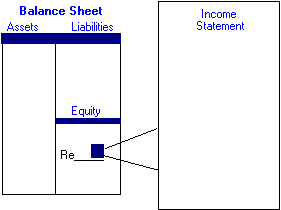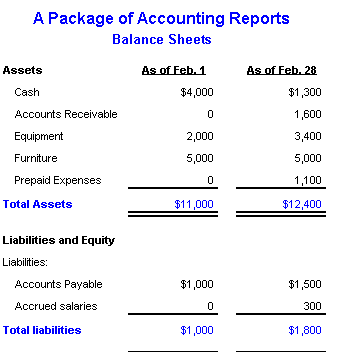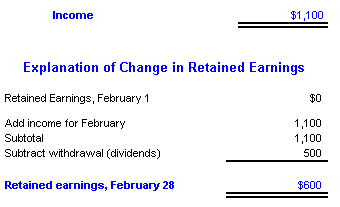Income Statement
You report revenues and the expenses of an accounting period in a financial statement called the income statement, also called a profit and loss statement or operating statement. Since revenues and expenses are increases and decreases in equity, the income statement explains changes in one item, retained earnings, on the balance sheet.

There is no standard format for an income statement. Sage 50 includes a tentative format that you can use as is, or tailor to produce the statement best suited to your own needs. In this format, the various items of revenue are shown first, the total revenue is calculated, and the expenses are subtracted. The difference between revenues and expenses is income. Because it is at the bottom of the statement, the income amount is often referred to as the bottom line.
Package of Accounting Reports
Computer Solutions' Balance Sheet at the end of January is the same one you used earlier and is the balance sheet for the beginning of February. It is shown in the first column of the exhibit. The balance sheet as of the end of February is in the second column. The income statement for February is given below the balance sheets.
Note that the change in Retained Earnings during February is $600 ($600-$0). As shown at the bottom of Exhibit 1, this change is the net effect of two items:
- The income for the period, $1,100, as reported on the income statement.
- A dividend paid during the period, $500.
Note also that although income in February is $1,100, Cash decreases by $2,700 ($4,000-$1,300). This decrease emphasizes that there is not necessarily a connection between the income of a period and the change in cash during the period.
In examining the activities of an accounting period, you will find it useful to consider changes in assets and equities in the beginning and ending balance sheets,and the revenues and expenses of the period, as shown on the income statement.



These techniques are consistent with the general accounting principles. This section is an overview of the accounting process. Details are given in later sections.